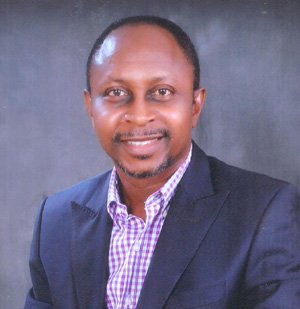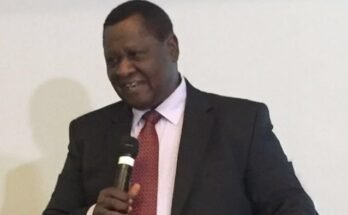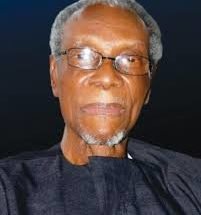
Okwudiba Nnoli is a celebrity academic. At both University of Dar es Salaam, Tanzania and University of Nigeria, Nsukka, where he spent an illustrious career teaching Political Science, he is still considered a legend – many years after he went into retirement. Most of his former students still recall with glee his formidable intellectual presence and subject-matter mastery on campus. Among them are many presidents, governors, ministers, professors, editors and countless other accomplished professionals in diverse fields across the globe. Few, however, are aware that this giant in Political Science actually started out with a top degree in Molecular Biology. Today, at over 80 and enjoying retirement in Enugu, Prof. Nnoli is still as sharp as a razor.
Victor Anazonwu of The Renaissance Editorial Board (also one of his former students) recently encountered the great Okwudiba Nnoli again.
It was explosive, as usual. His conclusion: Nothing has changed.
Enjoy the interview.
Question:
In the early 1980s or so, you wrote a milestone book, “Ethnic Politics in Nigeria.” In the book, you examined the challenges of ethnicism and offered solutions. Has anything changed?
Answer:
My book “Ethnic Politics in Nigeria “ was first published in 1978. Its objective was to debunk in as clear and scientific a manner as possible that Nigeria and, indeed, Africa are raplete with tribes which are, and have to be, perpetually in conflict with one another. It argued vigorously that the ethnic condition in Nigeria was the result of the twin factor of British colonialism and the emergence within it of a parasitic ruling class, the petty bourgeoisie.
The British used tribalism or ethnicity, properly called, to divide the Nigerian people in other to facilitate and prolong their rule without the use of military force. On its part, the Nigerian petty bourgeoisie could not compete successfully for resources at the level of production because it plays only a marginal role in it. Consequently, it had to rely on the manipulation of ethnicity rather than class for its share of national cake.
Unfortunately, it was this class that the British handed political power to at independence. They set up a system dominated by the search for petty bourgeois privileges instead of rights for all. Hence, Nigerian politics is about the sharing of the National cake essentially among the ethnic factions of this class.
Therefore as the population of this class has grown over the years, the manipulation of ethnicity for the benefit of as many of its members as possible had grown and intensified. In other words, the situation has changed but for the worst. Every available political space has now been brought into the arena of ethnic politics, creating a culture into which the young are socialized.
It is now more difficult to solve the problem by mere political reforms. We need a new ruling class that is class conscious rather than ethnic conscious.
Question:
Recently, race relations have erupted in the USA, leading to the Black Lives Matter Movement. What is the relationship between racism and ethnicism? Which, if any, is worse?
Answer:
Both racism and ethnicity have the same dynamics. They are similar because they both rely on identification based on primordial factors, race and culture respectively. Clearly, no individual had a say in deciding his/her color of skin or the cultural environment which he/she was born into. To base victimization on such factors is clearly inhuman. Racism is worse than ethnicity because while culture can change, race certainly cannot. It also historically involves domination and, many times, exploitation of one group by another which ethnicity does not have to involve. Also racism is accompanied by inferiorization and superiority complex.
Question:
Do you see any way out of these for humanity?
Answer:
Of course, in the end good will triumph against evil. It will require a very protracted struggle waged on all fronts for this to happen. When the struggle is waged properly by properly mobilizing the progressive forces against racial and ethnic injustice, victory will result. The end of apartheid in South Africa and some of the changes in racial injustice in the U.S give us hope.
Question:
How have you been spending your retirement after many years of teaching politics at university?
Answer:
I retired from UNN in April 1995 after 21 years with the institution. It was a voluntary retirement. From around 1987 it had become clear to me that University teaching in Nigeria no longer provided the joy and fulfillment that it did in the past at the University of Nigeria, and before then in East Africa and the US. The students were no longer interested in reading and studying. All they wanted was a shortcut to the degree certificate. Worst still, the academic staff of the university, the University administration and the parents and government seem to have also lost interest in university teaching and learning. Under the circumstance, I saw no value in teaching at the university. But I still wished to remain an academic by doing other academic chores than university teaching, notably research. Consequently, I set up a research center in Enugu, The Pan African Center for Research on Peace and Conflict Resolution (PACREP). Therefore, I spent my retirement doing academic research and visiting my children and grandchildren in the U.S and Canada.
Question:
Are there things you wish you did or knew back then as a lecturer which might have made a difference?
Answer:
In the belief that the Nigerian political economy needed systemic change, I had organized ideological classes every Sunday for all the students of UNN who were interested. It ran from 1974 when I joined the university from the university of Dar es Salaam, Tanzania, where a similar class was run, until 1979 when I went to Stanford University and the University of California Berkeley on sabbatical. Unfortunately, the products of that class now dominate the civil society organizations. Obviously, we did not warn them that that sector of the political economy would only lead to reforms that would lead nowhere. We should have focused on organizational efforts that would yield systemic change.
Question:
You are a passionate and active old boy of OGSS. Why so? Who was your favorite teacher and what was your favorite subject?
Answer:
Government secondary school, Owerri changed my life completely for the better. Family poverty and intra-polygamous family politics conspired to decide that there was no money to send me to Secondary School in spite of entreaties from my primary school teachers that I had the potential for university learning and that the family should plan ahead for such. But the family planned that I would learn carpentry and be a carpenter. But fate dealt a different hand when I received entrance scholarship to Government secondary school Owerri. And both my books and clothes were paid for. As they say, the rest is history. Therefore, my gratitude to the school for this change of life course is boundless. I can’t pay back enough. How I wish I can.
My favorite teacher at Owerri was Mr Ben Chukwudebe. He was a combination of an alter ego, whom I wished to be like, and the person who tried to help me to achieve it (my mentor). He made me change my style of footballing from dribbling and individual excellence to team work. The result was the Phensic Cup, playing for Enugu and Eastern Region, being named to the national team in 1961 and captaincy of the soccer team for 3 years at Stanford University which earned me a lot of material benefits. In addition, his style of teaching mathematics which emphasized speed and accuracy helped me to pass the Aptitude Test and gain the scholarship of the African Scholarship Program of American Universities (ASPAU) in 1961.
He even influenced me to change my date of birth from the false one of 1942 to the correct one of 1939; and taught me how to throw the discuss and javelin to the level where I was able to represent the school at the Wilson Parnaby Athletic Competition. His influence over me was pervasive.
I liked all the subjects taught at Owerri except physical geography. But I liked mathematics, chemistry and history best. If I am forced to choose one among these three, it would be chemistry, probably because of the way Mr Chukwudebe taught it.
Question:
But you went on to study political science. Why?
My ASPAU scholarship tenable at Stanford university in California was for molecular biology which combines biochemistry and microbiology. But I had the ambition to study medicine and tried to qualify for admission to it. At the same time I had an overriding ambition to bring my elder and younger brothers to the US to study in order for them to escape the kind of future that I faced before Owerri changed everything. I predicted that I might not get a scholarship to medical school. And molecular biology was so advanced (dominated by our professors Kornberg and his wife, Nobel price winners in Biochemistry, and Professor Lederberg and his wife, Nobel price winners in microbiology) that studying it to the highest level would mean my having to live permanently in the US to practice it. But I was eager to return to Africa and Nigeria to contribute my quota to the new nations of the continent. My interest in Political Science would do that. I therefore, took undergraduate courses in the Development with the objective of obtaining PHD in the field later if I did not get a scholarship for medical school. At the end of undergraduate work, I graduated with Distinction in Molecular Biology, fulfilled the requirements for a bachelors degree in Political Science , gained admission to two medical schools but without any scholarship, gained scholarship admission at Stanford for PhD study in both Molecular Genetics and Political Science. Under the circumstances, I took up the scholarship for Political Science at the end of 1964. My two brothers arrived in 1965 to pursue their studies in what I consider my greatest achievement in life.
Question:
If you had your way, what would you change about the way politics is played in Nigeria?
Answer:
I would change the ruling class away from the petty bourgeoisie to an organized working class that would respect the masses and implement people-oriented policies that emphasize the education, health and political organization of the masses, and an economy that emphasizes innovation of local products and resources that respond to local needs and traditional consumption patterns.
Question:
If you get a chance to advise President Muhammadu Buhari on politics today, what would you say to him?
Answer:
My politics is so completely different than that of President Buhari that it will be futile to offer him any advice. While he wishes the reform of the political system, I wish a systemic change of both the politics and economy. He would not agree to commit the class suicide necessarily demanded of him by my politics. However, I presented a paper on political parties to the APC leaders at the time they were trying to unite their various component parties, at their invitation. I urged them to ensure that the party was organized such that the members would have overwhelming influence over the party and state leaders. They have not heeded the advice.
Question:
What do you make of the Donald Trump phenomenon in American politics and global affairs?
Answer:
I was in the US when Trump was elected. My shocked reaction was “another Idi Amin”. I was in Tanzania when the latter took power in neighboring Uganda. Both took power for very selfish ends and without any proper understanding of the dynamics of domestic and global politics. They would do anything and everything to maintain power and safeguard their personal interests, no matter whose ox is gored. Their victims would be vulnerable minorities, Asians in Uganda and immigrants in the US, as well as the domestic and global institutions. In the end, their incompetence would show but not before they have inflicted serious heart aches on their people.
Thank you, prof. It is a pleasure seeing you again.
You’re welcome, Victor.

Victor Anazonwu is a journalist, historian and author of “The 8 Habits of Highly Ineffective People” (amazon.com 2019)
![]()






